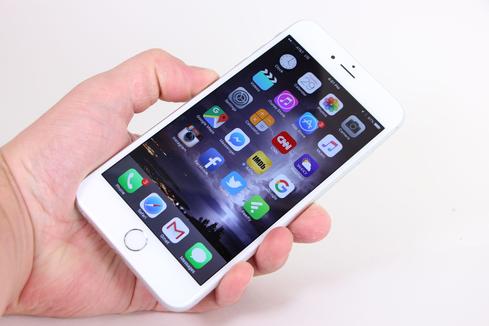iPhone 6s Chipgate: Benchmarks Create Battery Life Worries
Apple's new iPhone 6s and iPhone 6s plus rely on A9 processors from Samsung and TSMC. Some claim the chips consume battery life differently.


iPhone 6s Plus Hands-On: 10 Best Features
iPhone 6s Plus Hands-On: 10 Best Features (Click image for larger view and slideshow.)
Apple inadvertently created a bit of PR debacle for itself by sourcing the A9 processor from two different companies. Benchmark tests used to assess battery and processor performance on the iPhone 6s and iPhone 6s Plus are coming back with curious results, suggesting one processor is more efficient than the other.
Apple says that's not the case.
Apple picked Samsung and TSMC to manufacture the A9 processor. Samsung made the chip using its 14nm process and created a chip that's 96 square millimeters. TSMC used its 16nm process and the chip consumes 104.5 square millimeters.
Primate Labs' website has a collection of GeekBench battery life test results, which show a fairly wide variance. The widest gap stretched about 20%, which amounted to a difference in about two hours of battery life. No doubt, that's a significant disparity between handsets. The results are crowd-sourced from various iPhone 6s and 6s Plus owners, so we're talking about more than just a handful of phones.
Even so, the differences can be a bit misleading.
To start, AnandTech points out that GeekBench's results as seen on Primate Labs' site can't be sorted between those generated by the Samsung A9 and TSMC A9. It's easy to see that one test result generated more battery life than another, but there's no easy way to see which chip generated the result. More to the point, variances in manufacturing will (almost always) lead to chips that perform better than others, within margins deemed acceptable by the fabricator and/or Apple. Toss in a variety of other components from other manufacturers added along the assembly line, and there's no way to avoid minor variances between individual devices. It's the nature of manufacturing.
Two hours sounds like more than a minor variance, but Apple has a response to the issue.
"Certain manufactured lab tests which run the processors with a continuous heavy workload until the battery depletes are not representative of real-world usage, since they spend an unrealistic amount of time at the highest CPU performance state," said the company in a statement. "It's a misleading way to measure real-world battery life. Our testing and customer data show the actual battery life of the iPhone 6s and iPhone 6s Plus, even taking into account variable component differences, vary within just 2-3% of each other."
That 2% to 3% difference amounts to something more like 12 to 15 minutes of battery life in an average day.
[Read about other Apple controversies.]
One might accuse Apple of sugar-coating the issue, but it's response is fairly reasonable. Consider Apple's position. It collects vast stores of data from customers. It certainly has far more data on battery life variances than Primate Labs and GeekBench can ever hope to produce. Further, it probably knows how to differentiate between results generated by the Samsung and TSMC A9 processors.
More importantly, Apple admitted that there is in fact a difference in performance of the two chips. Apple owned up to the issue and provided stats to put it to rest. The 2-3% variance surely falls within acceptable margins for the majority of consumer electronics devices.
At the end of the day (pun intended), battery life depends on myriad factors, and benchmark testing doesn't necessarily reflect what happens in the real world.
About the Author
You May Also Like






